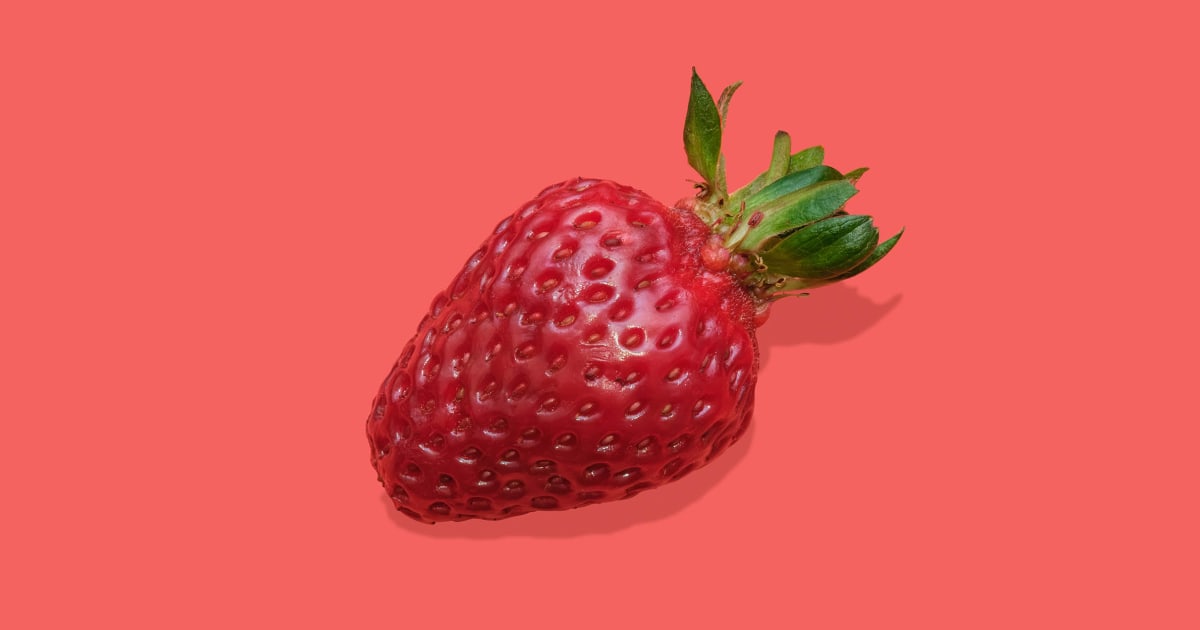
Vitamin C is synonymous with oranges for many people, but other fruits can deliver even more of the powerful antioxidant.
One medium orange contains 68 milligrams of vitamin C, a nutrient that’s important for a healthy body in several ways.
It plays a role in keeping the immune system strong and protects cells from damage. It’s key for healthy skin, bones, teeth and gums. It also helps the body heal wounds and absorb iron from plant-based foods.
“So as people are transitioning to more of a plant-based way of eating, sometimes having extra vitamin C can help your body absorb iron from foods like spinach or beans to make sure you’re not deficient in iron,” Sarah Rivenburgh, a registered dietitian at OhioHealth, previously told TODAY.com.
The recommended daily intake of vitamin C is 90 milligrams for men and 75 milligrams for women, according to the National Institutes of Health. Children need less.
The body can’t make vitamin C, so people need to get it from food.
“It’s very easy to get enough vitamin C through your diet alone. The body can absorb nutrients from food better than supplements, so I always recommend starting with foods,” says Natalie Rizzo, nutrition editor for TODAY.
The key is to eat fresh fruits because vitamin C is destroyed when food is processed or exposed to heat, light or oxygen, registered dietitian Carol Johnston, Ph.D., previously told TODAY.com. She’s a professor of nutrition at Arizona State University and an expert on vitamin C metabolism.
Vitamin C is water-soluble, which means it can dissolve in water and is not stored by the body — the excess is flushed out in urine.
If you’re not a fan of citrus or would just like more options, here are six fruits with more vitamin C than an orange:
Bell peppers
- 1 yellow bell pepper, 342 milligrams of vitamin C
- 1 red bell pepper, 210 milligrams of vitamin C
- 1 green bell pepper, 132 milligrams of vitamin C
Bell peppers are officially a fruit, and they top the list of fruits with the most vitamin C.
They contain several times more of the nutrient than an orange, especially the yellow kind.
Naturally low in calories and fat, bell peppers provide fiber and a satisfying crunch. Red bell peppers are also rich in vitamin A for healthy vision and immune function, Rizzo notes.
Kiwi
- 1 cup of raw kiwi, 134 milligrams of vitamin C
Kiwi is an “amazing source of vitamin C,” Shelly Wegman, registered dietitian at UNC Rex Nutrition Services, previously told TODAY.com. A cup of the fruit contains twice as much vitamin C as an orange.
It’s fun to eat, too, with a bright green flesh, a not-too-sweet taste and tiny black seeds. Kiwi is among fruits with the least sugar.
Guava
- 1 guava, 125 milligrams of vitamin C
The sweet tropical fruit is a nutrient powerhouse. Besides containing almost double the amount of vitamin C found in an orange, a serving of guava is among fruits with the most protein, magnesium and potassium. It’s also high in fiber.
Guava, which tastes a bit like a strawberry or pear, is delicious on its own or when added to smoothies and salads.
Strawberries
- 1 cup of raw strawberries, 90 milligrams of vitamin C
Strawberry season means lots of ways to enjoy the delectable fruit. There’s more to celebrate than just the sweet taste. A serving of strawberries provides almost one-and-a-half times the vitamin C of an orange.
Dietitians recommend eating berries of all kinds every day for good health. Berries come with plant nutrients that provide anti-oxidant and anti-inflammatory protection, which is a “plausible and potentially useful dietary strategy to reduce risk of cancer,” studies have found.
Papaya
- 1 cup of papaya, 88 milligrams of vitamin C
Papaya’s orange color comes from carotenoids which have antioxidant properties. They include beta carotene, a chemical that helps form vitamin A; and lycopene, which may reduce the risk of heart disease and stroke, according to the American Heart Association.
Carotenoids can also be protective against cancer, studies have found.
Pineapple
- 1 cup of pineapple, 79 milligrams of vitamin C
A serving of pineapple contains more than 100% of the vitamin C a woman needs for the day.
It also delivers insoluble fiber, or roughage, which feeds the good bacteria in the gut microbiome and helps to keep the bowels moving regularly.
Pineapple contains a unique enzyme called bromelain that breaks down proteins and has anti-inflammatory properties, according to the National Cancer Institute.
